Strictly Personal
How to make retirement attractive for African presidents, By Fredrick Ogola
Published
10 months agoon
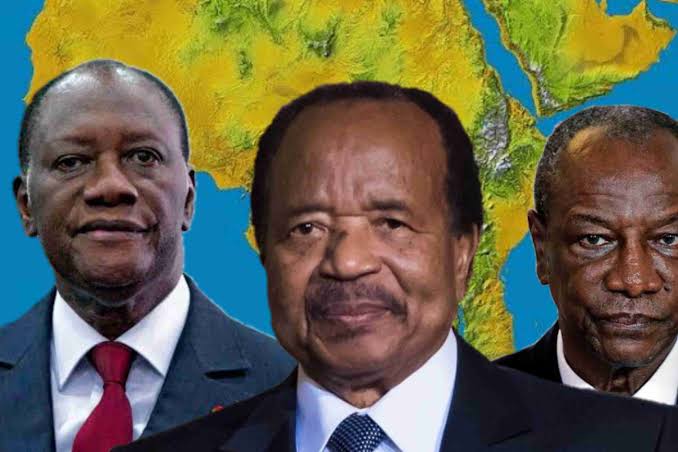
Evidence suggests that many African leaders dread retirement. Teodoro Obiang Nguema Mbasogo of Equatorial Guinea is the world’s longest-serving president since October 12, 1982.
He is less than one month longer in power than Paul Biya of Cameroon who has been president since November 6, 1982, having earlier served as the Prime Minister from 1975.
That makes Paul Biya, who is also the oldest head of state in the world, the longest consecutively serving current non-royal head of state in the world (47 years).
Yoweri Museveni has done 37 years and counting in Uganda, while Daniel arap Moi of Kenya did 24 years. In 2022, Central Organisation of Trade Unions (Cotu) secretary general Francis Atwoli once remarked that former President Uhuru Kenyatta was too young to retire from politics.
In the US, President Barrack Obama retired at 55, Bill Clinton at 54 and Theodore Roosevelt at 50. Ronald Reagan who retired at 77 is soon going to be overtaken by Joe Biden, who is currently 80.
However, in the US, retirement is not dreaded by national leaders; for the country’s system makes senior citizens enjoy retirement.
The US governments, for example, usually make resolutions to create libraries and foundations for their supporters, such as the Carter Centre and Jimmy Carter Library and Museum.
In Latin America, a president can serve a full term, take a break and then come back. Michelle Bachelet, the first Chilean female President served from 2006 until 2010, and then from 2014 to 2018.
Former US President Donald Trump is trying to achieve the same. In terms of retirement, UN civil servants and other international civil servants also enjoy a lot of privileges that are not accessible to national civil servants.
The question is, with the vast resources in Kenya, what then can be done to make retirement attractive?
Generally, health and financial well-being are important ingredients for the enjoyment of life in retirement. In addition to these are involved in volunteer charitable activities and hobbies.
But this is not all. As one of his strategic economic advisers, I once asked President Mwai Kibaki, as he was about to retire, about his take on it.
As he entered his limousine at Consolata Shrine after the Sunday Mass, he told me: “Freddie, how do I retire without politics and the economy, which have been my daily routine for the last 50 years?”
In short, he was concerned about how to retire actively without doing what had become his ‘second nature’ for the last 50 years.
Kenya’s former president Uhuru Kenyatta was the other day castigated for coming out to defend his party, Jubilee. He was again ‘advised’ to retire, and reminded of the law that prohibits former heads of state from being involved in politics six months after leaving office.
But in Tanzania, Nyerere continued to lead CCM even after retirement from the presidency.
Mr Kenyatta has a retirement package just like what Kibaki and Moi had. The question is, what is it that makes him stick to politics even with the risk of losing these benefits? Is there something lacking in the constitutional retirement package provided?
Some senior citizens in the know, names withheld, intimated that the main reason is that the retirement packages granted are just but basic.
How can one expect Mr Kenyatta, for example, having been born in State House with politics as a way of his life from childhood to now, to live a different life?
Are we blind to the idiom that you cannot teach an old dog new tricks? The same applies to Opposition leader Raila Odinga. How can he retire from politics with a basic retirement package?
Having five vehicles with drivers and bodyguards but with nowhere to go or anything to do for public welfare can be torturous.
My crystal ball tells me that we need to go beyond the economic package and offer something additional like a social and academic environment so that these senior citizens who have dutifully served the country can retire productively.
A safe and secure retirement centre with sports facilities, a health spa for physical fitness and a fully equipped research centre would help them continue enriching the nation.
Here, they would document their memoirs and legacy as they educate and mentor young and emerging leaders at the same time.
If a ‘knowledge house’ akin to Chatham House could be set up, the latter that has hosted the likes of former vice president Moody Awori, former Principal Secretary Mbathi Titus, Julia Ojiambo and Nyiva Mwendwa, this community of knowledgeable staff and others would make retirement more attractive and productive than it is currently.
Mr Kenyatta, Mr Odinga and others would willingly join them and together they would form book clubs and a community of practice in different fields, through which they would continue contributing to Kenya’s economic and political prosperity through proper channels.
They would read, research and publish. Luckily, even though younger people tend to get information from social media, research shows that books are the most read information material by 86 percent of Nairobians, followed by newspapers at 36 percent, with those aged 45 and above being the most frequent readers.
Methinks that offering this opportunity for retired politicians to continue contributing to Kenya’s development could be better than being forced to retire and contribute nothing to Kenya’s challenges, with the threat of losing retirement benefits and their hard-earned legacy in case of non-retirement from active politics.
Dr Fredrick Ogola is the CEO of, the African Health & Economic Institute and Director of the Institute of Strategy and Competitiveness
You may like
-


This Sudan war is too senseless; time we ended it, By Tee Ngugi
-
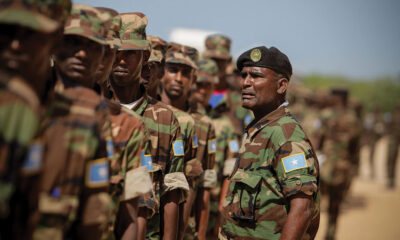

African leaders seek change in fight against terrorism at Nigerian summit
-


Air Peace, capitalism and national interest, By Dakuku Peterside
-


This is chaos, not governance, and we must stop it, By Tee Ngugi
-
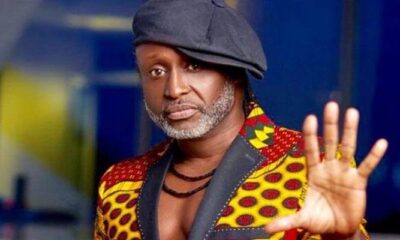

Shoot corrupt African leaders, Ghanaian Hip-Life star Reggie Rockstone says
-


Off we go again with public shows, humbug and clowning, By Jenerali Uliwengu
Strictly Personal
This Sudan war is too senseless; time we ended it, By Tee Ngugi
Published
7 days agoon
April 28, 2024
Why are the Sudanese Armed Forces (SAF) and the paramilitary Rapid Support Forces (RPF) engaged in a vicious struggle? It is not that they have ideological, religious or cultural differences.
Not that people should fight because of these kinds of differences, but we live in a world where social constructions often lead to war and genocide. It is not that either side is fighting to protect democracy. Both sides were instruments of the rapacious dictatorship of Omar el-Bashir, who was overthrown in 2019.
Both are linked to the massacres in Darfur during Bashir’s rule that led to his indictment by the International Criminal Court for crimes against humanity. They both stood by as ordinary, unarmed people took to the streets and forced the removal of the Bashir regime.
None of these entities now fighting to the last Sudanese citizen has any moral authority or constitutional legitimacy to claim power. They both should have been disbanded or fundamentally reformed after the ouster of Bashir.
The SAF and the RSF are fighting to take over power and resources and continue the repression and plunder of the regime they had supported for so long. And, as you can see from news broadcasts, they are both well-versed in violence and plunder.
Since the fighting began in 2023, both sides have been accused of massacres that have left more than 30,000 people dead. Their fighting has displaced close to 10 million people. Their scramble for power has created Sudan’s worst hunger crisis in decades. Millions of refugees have fled into Chad, Ethiopia and South Sudan.
The three countries are dubious places of refuge. Chad is a poor country because of misrule. It also experiences jihadist violence. Ethiopia is still simmering with tensions after a deadly inter-ethnic war.
And South Sudan has never recovered from a deadly ethnic competition for power and resources. African refugees fleeing to countries from which refugees recently fled or continue to flee sums up Africa’s unending crisis of governance.
Africa will continue to suffer these kinds of power struggles, state failure and breakdown of constitutional order until we take strengthening and depersonalising our institutions as a life and death issue. These institutions anchor constitutional order and democratic process.
Strong independent institutions would ensure the continuity of the constitutional order after the president leaves office. As it is, presidents systematically weaken institutions by putting sycophants and incompetent morons in charge. Thus when he leaves office by way of death, ouster or retirement, there is institutional collapse leading to chaos, power struggles and violence. The African Union pretends crises such as the one in Sudan are unfortunate abnormally. However, they are systemic and predictable. Corrupt dictatorships end in chaos and violence.
Tee Ngugi is a Nairobi-based political commentator.
Strictly Personal
Air Peace, capitalism and national interest, By Dakuku Peterside
Published
3 weeks agoon
April 16, 2024
Nigerian corporate influence and that of the West continue to collide. The rationale is straightforward: whereas corporate activity in Europe and America is part of their larger local and foreign policy engagement, privately owned enterprises in Nigeria or commercial interests are not part of Nigeria’s foreign policy ecosystem, neither is there a strong culture of government support for privately owned enterprises’ expansion locally and internationally.
The relationship between Nigerian businesses and foreign policy is important to the national interest. When backing domestic Nigerian companies to compete on a worldwide scale, the government should see it as a lever to drive foreign policy, and national strategic interest, promote trade, enhance national security considerations, and minimize distortion in the domestic market as the foreign airlines were doing, boost GDP, create employment opportunities, and optimize corporate returns for the firms.
Admitted nations do not always interfere directly in their companies’ business and commercial dealings, and there are always exceptions. I can cite two areas of exception: military sales by companies because of their strategic implications and are, therefore, part of foreign and diplomatic policy and processes. The second is where the products or routes of a company have implications for foreign policy. Air Peace falls into the second category in the Lagos – London route.
Two events demonstrate an emerging trend that, if not checked, will disincentivize Nigerian firms from competing in the global marketplace. There are other notable examples, but I am using these two examples because they are very recent and ongoing, and they are typological representations of the need for Nigerian government backing and support for local companies that are playing in a very competitive international market dominated by big foreign companies whose governments are using all forms of foreign policies and diplomacy to support and sustain.
The first is Air Peace. It is the only Nigerian-owned aviation company playing globally and checkmating the dominance of foreign airlines. The most recent advance is the commencement of flights on the Lagos – London route. In Nigeria, foreign airlines are well-established and accustomed to a lack of rivalry, yet a free-market economy depends on the existence of competition. Nigeria has significantly larger airline profits per passenger than other comparable African nations. Insufficient competition has resulted in high ticket costs and poor service quality. It is precisely this jinx that Air Peace is attempting to break.
On March 30, 2024, Air Peace reciprocated the lopsided Bilateral Air Service Agreement, BASA, between Nigeria and the United Kingdom when the local airline began direct flight operations from Lagos to Gatwick Airport in London. This elicited several reactions from foreign airlines backed by their various sovereigns because of their strategic interest. A critical response is the commencement of a price war. Before the Air Peace entry, the price of international flight tickets on the Lagos-London route had soared to as much as N3.5 million for the economy ticket. However, after Air Peace introduced a return economy class ticket priced at N1.2 million, foreign carriers like British Airways, Virgin Atlantic, and Qatar Airways reduced their fares significantly to remain competitive.
In a price war, there is little the government can do. In an open-market competitive situation such as this, our government must not act in a manner that suggests it is antagonistic to foreign players and competitors. There must be an appearance of a level playing field. However, government owes Air Peace protection against foreign competitors backed by their home governments. This is in the overall interest of the Nigerian consumer of goods and services. Competition history in the airspace works where the Consumer Protection Authority in the host country is active. This is almost absent in Nigeria and it is a reason why foreign airlines have been arbitrary in pricing their tickets. Nigerian consumers are often at the mercy of these foreign firms who lack any vista of patriotism and are more inclined to protect the national interest of their governments and countries.
It would not be too much to expect Nigerian companies playing globally to benefit from the protection of the Nigerian government to limit influence peddling by foreign-owned companies. The success of Air Peace should enable a more competitive and sustainable market, allowing domestic players to grow their network and propel Nigeria to the forefront of international aviation.
The second is Proforce, a Nigerian-owned military hardware manufacturing firm active in Rwanda, Chad, Mali, Ghana, Niger, Burkina Faso, and South Sudan. Despite the growing capacity of Proforce in military hardware manufacturing, Nigeria entered two lopsided arrangements with two UAE firms to supply military equipment worth billions of dollars , respectively. Both deals are backed by the UAE government but executed by UAE firms.
These deals on a more extensive web are not unconnected with UAE’s national strategic interest. In pursuit of its strategic national interest, India is pushing Indian firms to supply military equipment to Nigeria. The Nigerian defence equipment market has seen weaker indigenous competitors driven out due to the combination of local manufacturers’ lack of competitive capacity and government patronage of Asian, European, and US firms in the defence equipment manufacturing sector. This is a misnomer and needs to be corrected.
Not only should our government be the primary customer of this firm if its products meet international standards, but it should also support and protect it from the harsh competitive realities of a challenging but strategic market directly linked to our national military procurement ecosystem. The ability to produce military hardware locally is significant to our defence strategy.
This firm and similar companies playing in this strategic defence area must be considered strategic and have a considerable place in Nigeria’s foreign policy calculations. Protecting Nigeria’s interests is the primary reason for our engagement in global diplomacy. The government must deliberately balance national interest with capacity and competence in military hardware purchases. It will not be too much to ask these foreign firms to partner with local companies so we can embed the technology transfer advantages.
Our government must create an environment that enables our local companies to compete globally and ply their trades in various countries. It should be part of the government’s overall economic, strategic growth agenda to identify areas or sectors in which Nigerian companies have a competitive advantage, especially in the sub-region and across Africa and support the companies in these sectors to advance and grow to dominate in the African region with a view to competing globally. Government support in the form of incentives such as competitive grants ,tax credit for consumers ,low-interest capital, patronage, G2G business, operational support, and diplomatic lobbying, amongst others, will alter the competitive landscape. Governments and key government agencies in the west retain the services of lobbying firms in pursuit of its strategic interest.
Nigerian firms’ competitiveness on a global scale can only be enhanced by the support of the Nigerian government. Foreign policy interests should be a key driver of Nigerian trade agreements. How does the Nigerian government support private companies to grow and compete globally? Is it intentionally mapping out growth areas and creating opportunities for Nigerian firms to maximize their potential? Is the government at the domestic level removing bottlenecks and impediments to private company growth, allowing a level playing field for these companies to compete with international companies?
Why is the government patronising foreign firms against local firms if their products are of similar value? Why are Nigerian consumers left to the hands of international companies in some sectors without the government actively supporting the growth of local firms to compete in those sectors? These questions merit honest answers. Nigerian national interest must be the driving factor for our foreign policies, which must cover the private sector, just as is the case with most developed countries. The new global capitalism is not a product of accident or chance; the government has choreographed and shaped it by using foreign policies to support and protect local firms competing globally. Nigeria must learn to do the same to build a strong economy with more jobs.
EDITOR’S PICK


Nigerian retail startup Renda secures $1.9m funding to drive expansion
Nigeria’s retail startup, Renda, has announced securing a $1.9 million pre-seed round of equity and debt funding to enable it...


Burna Boy emerges Africa’s top earning artiste in the US from tours, concerts
Nigerian Afrobeats sensation, Burna Boy, has emerged as the first African artiste to stage the highest-grossing arena concerts and tours...


Nigeria’s 4x400m mixed relay, 4×400 teams qualify for Olympics
Team Nigeria on Sunday morning booked two places at the upcoming Paris Olympics Games in the Mixed 4x400m relay and...


FX bank swaps account for 30% of Nigeria’s external reserves— Fitch
Global credit ratings firm, Fitch, has claimed that approximately 30% of Nigeria’s external reserves is comprised of foreign exchange (FX)...


Nigeria: Civil society group sues 36 govs, Wike over N5.9tn, $4.6bn loans
A civil society organisation in Nigeria, Socio-Economic Rights and Accountability Project (SERAP), has dragged the 36 state governors of the...
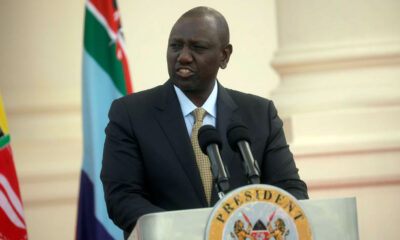

Kenya: President Ruto hints at ‘dire’ weather outlook as Cyclone Hidaya nears
President William Ruto has announced that the severe rains that have been plaguing Kenya for the past several weeks resulting...


Again, Rwanda denies it attacked displaced persons in DR Congo
For the sixteenth time, Rwanda refuted US charges on Saturday that its troops attacked a camp for internally displaced persons...


Nigeria offers oil majors faster exit if …
Oil-rich West African country, Nigeria, has offered major oil companies, such as Exxon Mobil and Shell, that planned to leave...


Nigeria’s Security Exchange chief to meet foreign, local crypto exchanges, others over crypto regulation
On Monday, local and international cryptocurrency exchanges will meet with Dr. Emomotimi Agama, the recently appointed Director General of the...


Rhino Resources, BP-Eni JV sign agreement for Namibia offshore licence
Rhino Resources Namibia and a BP-Eni joint venture have agreed to share a 42.5% stake in a block located in...
Trending
-

 VenturesNow21 hours ago
VenturesNow21 hours agoNigeria offers oil majors faster exit if …
-

 Sports1 day ago
Sports1 day agoKenyan footballer arrested over brutal robbery, murder case
-
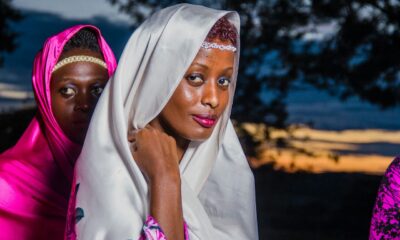
 Culture1 day ago
Culture1 day agoMeet the Ugandan tribe where bride’s aunt must ‘test’ groom’s manhood before marriage
-

 VenturesNow21 hours ago
VenturesNow21 hours agoNigeria’s Security Exchange chief to meet foreign, local crypto exchanges, others over crypto regulation


